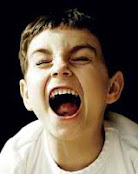### Understanding ASD and ADHD
Before delving into parenting strategies, it’s essential to understand what ASD and ADHD entail.
**Autism Spectrum Disorder** is a developmental disorder characterized by varying degrees of difficulty in social interaction, communication, and repetitive behaviors. Since ASD is a spectrum, some children may exhibit mild symptoms, while others may have more profound challenges.
**Attention Deficit Hyperactivity Disorder**, on the other hand, is characterized by issues with attention, impulse control, and hyperactivity. A child with ADHD may struggle to focus on tasks and may often seem restless or constantly “on the go.”
When a child has both ASD and ADHD, the symptoms can sometimes exacerbate each other. For instance, a child may have difficulty with social cues (due to ASD) while also struggling to pay attention to instructions or conversations (due to ADHD). Navigating these intertwined challenges requires a thoughtful and personalized approach.
### Building Understanding
The first step in parenting a child with both ASD and ADHD is to foster a deep understanding of each condition. Reading books, attending workshops, and participating in support groups can provide valuable insights. Connecting with parents who have similar experiences can offer not only knowledge but also emotional support.
### Creating Structure and Predictability
Children with both ASD and ADHD often thrive in structured environments. Routines help them feel secure and establish expectations. Here are some strategies to consider:
1. **Visual Schedules**: Create a visual representation of daily activities. This might include pictures or icons that represent different parts of the day, making it easier for your child to understand and anticipate transitions.
2. **Consistent Routines**: Adhering to consistent morning, school, and bedtime routines can help your child acclimate to daily schedules. Consistency builds trust and security, which is crucial for children with these conditions.
3. **Clear Instructions**: Give instructions one step at a time. Children with ASD may struggle with processing multiple pieces of information, while those with ADHD may be quick to lose focus. Breaking tasks down into smaller, manageable steps can reduce confusion and frustration.
### Encouraging Communication
Communication is another critical area that needs special attention. While children with ASD may have challenges in expressing their thoughts and feelings, children with ADHD may sometimes blur the lines of communication due to impulsivity.
1. **Promote Expressive Language**: Engage your child in activities that encourage them to express themselves. This can include storytelling, drawing, or playing games that involve role-play.
2. **Use Clear and Simple Language**: Avoid complex sentences. Use straightforward language and be direct about what you want or expect.
3. **Listen Actively**: Show genuine interest when your child speaks, maintaining eye contact and giving them your full attention. This helps validate their feelings and encourages further communication.
### Fostering Social Skills
Social interactions can be particularly challenging for children with ASD and ADHD. Here are some strategies to assist in social skill development:
1. **Role-Playing**: Engaging in role-play scenarios can help your child practice social interactions in a safe and controlled environment.
2. **Social Stories**: These are short stories that illustrate social situations and expected behaviors. They can help children understand social cues and responses.
3. **Structured Playdates**: Organizing playdates with clear guidelines and activities can provide a framework for social interaction. Being present during these interactions can also help guide your child when necessary.
### Managing Behaviors
Children with both ASD and ADHD may exhibit challenging behaviors that require proactive management.
1. **Positive Reinforcement**: Reinforce positive behaviors with praise or rewards. This encourages your child to repeat those behaviors in the future.
2. **Stay Calm and Patient**: In times of frustration, remain calm. Children often feed off their parents' emotions, and a calm demeanor can lead to a more conducive environment to resolve issues.
3. **Understand Triggers**: Pay attention to what triggers your child’s meltdowns or disruptive behavior. This could be sensory overload, changes in routine, or even social situations. Understanding these triggers can help you prevent challenging situations.
### Seeking Professional Support
Lastly, don’t hesitate to seek professional support. Collaboration with therapists, educators, and healthcare professionals can provide invaluable guidance tailored to your child’s needs.
1. **Therapies**: Look into different therapeutic options, such as occupational therapy, speech therapy, or applied behavior analysis (ABA). These can offer additional tools and strategies catered to your child.
2. **Educational Accommodations**: Work with your child’s school to ensure they receive the necessary accommodations to thrive academically. This may include additional time for tests, quiet spaces for focus, or personalized learning plans.
Parenting a child with both ASD and ADHD can feel like an uphill battle at times, but it is also filled with moments of joy, breakthroughs, and growth. The key is to be patient, flexible, and resourceful. As you navigate this journey, remember to celebrate small victories and cherish the unique qualities that make your child who they are. Each child is an individual, and embracing their uniqueness is what truly enriches the parenting experience. With love, understanding, and the right support, you can help your child thrive in a world that can sometimes feel overwhelming.
==> Parenting System that Reduces Defiant Behavior in Teens with Autism Spectrum Disorder
==> Launching Adult Children with Autism Spectrum Disorder: Guide for Parents Who Want to Promote Self-Reliance
==> Teaching Social-Skills and Emotion-Management to Children with Autism Spectrum Disorder
==> Parenting Children and Teens with High-Functioning Autism: Parents' Comprehensive Handbook
==> Unraveling the Mystery Behind High-Functioning Autism: Audio Book
==> Crucial Research-Based Parenting Strategies for Children and Teens with High-Functioning Autism
Click here to read the full article…
Click here for the full article...
Click here to read the full article…
Click here to read the full article…
Click here to read the full article...












